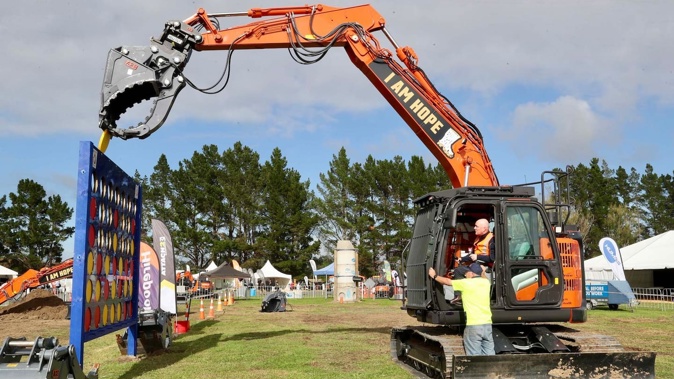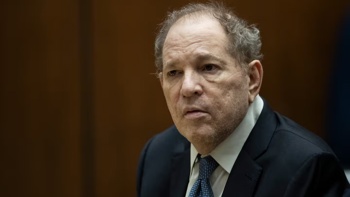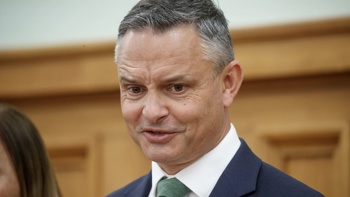
The Government is suspending a requirement for councils to map and impose Significant Natural Areas under environmental protection laws for three years, and telling councils “not to bother” continuing to map the areas while it overhauls the laws.
The move is part of the Act–National coalition agreement, which commits to halting any new SNAs.
Associate Environment Minister and Act MP Andrew Hoggard made the announcement at the Central Districts Field Days in Feilding today, which Prime Minister Christopher Luxon is also attending. The government today also announced $8.3 million towards a $20.75 million partnership with the primary sector and Beef + Lamb to help eradicate facial eczema in pastoral animals at the event.
 Prime Minister Christopher Luxon at Fieldays in Fielding. Photo / Mark Mitchell
Prime Minister Christopher Luxon at Fieldays in Fielding. Photo / Mark Mitchell
SNAs are areas of valuable indigenous biodiversity, such as remnants of native forest or valuable habitats of native wildlife, and have existed in some form since the RMA came into force in 1991. However, the National Policy Statement for Indigenous Biodiversity which came into force in August 2023, now requires councils to map the areas and include them in their plans by August 2028, including on private land, such as farmland.
They have been the subject of protest by rural advocacy group Groundswell and in some rural communities and areas where Māori land was affected, including the Far North and West Coast, because of restrictions on development.
Hoggard said the suspension was an interim measure while the Government’s overhaul of resource management laws was completed, including provisions on SNAs. However, he said suspending the requirements quickly was to ensure councils and communities did not waste resources and efforts on requirements that were likely to change.
“We’re sending a clear message that it would be unwise to bother.”
Hoggard said he had also asked officials to start work on a review of the operation of existing designated SNAs.
A short, targeted consultation round would be done prior to the introduction of new legislation to bring in the suspension.
The move would not change the need for councils to protect areas with significant indigenous biodiversity under the Resource Management Act 1991. It related to the National Policy Statement for Indigenous Biodiversity which came into force in August 2023, setting out a standardised approach and criteria for councils to abide by.
Green Party environment spokeswoman Lan Pham said that the Government was “intentionally whipping up fear of SNAs for its own political gain”.
“Significant Natural Areas [SNA] represent some of the most crucial pockets of our native habitat and act as a sanctuary for our most rare and threatened indigenous plants and species. Suspending the identification of SNAs and jeopardising existing ones condemns our flora and fauna to a future of continued decline and degradation.”
 Prime Minister Christopher Luxon behind the wheel of an excavator at Fieldays in Fielding. Photo / Mark Mitchell
Prime Minister Christopher Luxon behind the wheel of an excavator at Fieldays in Fielding. Photo / Mark Mitchell
Hoggard - a former president of Federated Farmers - said where SNAs were identified on private property, it could limit the activity and development that took place on that property.
“In their current form they represent a confiscation of property rights and undermine conservation efforts by the people who care most about the environment: the people who make a living from it.”
He said they effectively undermined farmers’ voluntary efforts to protect valuable conservation areas on their farms.
He said there were 180,000ha of privately-owned land in QEII covenants, all done voluntarily, which showed private landowners did care about conservation.
“This Government will be taking a collaborative approach with them, rather than undermining their rights.
“This Government is firmly committed to protecting New Zealanders’ property rights.
“If government takes away property rights there’s no incentive to be a conservationist. Ill-conceived regulations such as SNAs and the NPS Indigenous Biodiversity put roadblocks in place and turn biodiversity and conservation efforts into a liability.”
Take your Radio, Podcasts and Music with you









